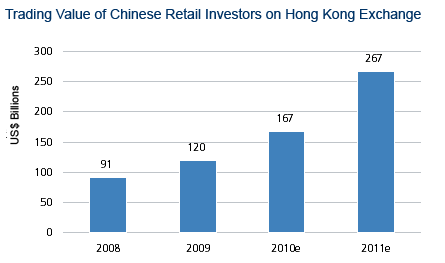The Chinese Derivatives Market: Deregulation Brings Opportunities
Abstract
The availability of new products and Chinese financial institutions’ entry into overseas markets is causing the Chinese derivatives market to change rapidly, affecting participants, products, and regulations.
In a new report, Chinese Derivatives Market: Deregulation Brings Opportunities, Celent examines trends in regulatory dynamics, the exchange-traded and OTC derivatives markets, market participants, and the growth in cross-border trading in China. The trend of regulation is favorable to the derivatives market. Trading technology is also advanced: the China Financial Exchange system can process 7,000–8,000 orders per second, and provides colocation services.
The regulator has enlarged the business scope of securities firms. Brokers can engage in overseas brokerage and consulting business. Mergers and acquisitions are changing the market structure of securities and futures brokers, as large securities firms take stakes in futures brokers. Hedge funds will be allowed in the near future, and Celent projects AuM at Chinese hedge funds will grow 500% by 2015. Large securities firms can establish their own proprietary firms, asset managers, and branches in Hong Kong. This enables large proprietary firms to trade cross-border easily and employ hedge fund strategies.

“The regulator is encouraging Chinese corporations to trade overseas derivatives, allowing Chinese corporates and brokers to trade in overseas markets,” says Hua Zhang, analyst with Celent’s Asian Financial Services group and author of the report, “However, some barriers to trading in overseas markets remain, such as capital flow restrictions.”

